Welcome to the West Blog Post
On April 13th, 2022, Arizona PBS presented a celebration of National Poetry Month, spotlighting the Arizona State University faculty who appeared in our third season.
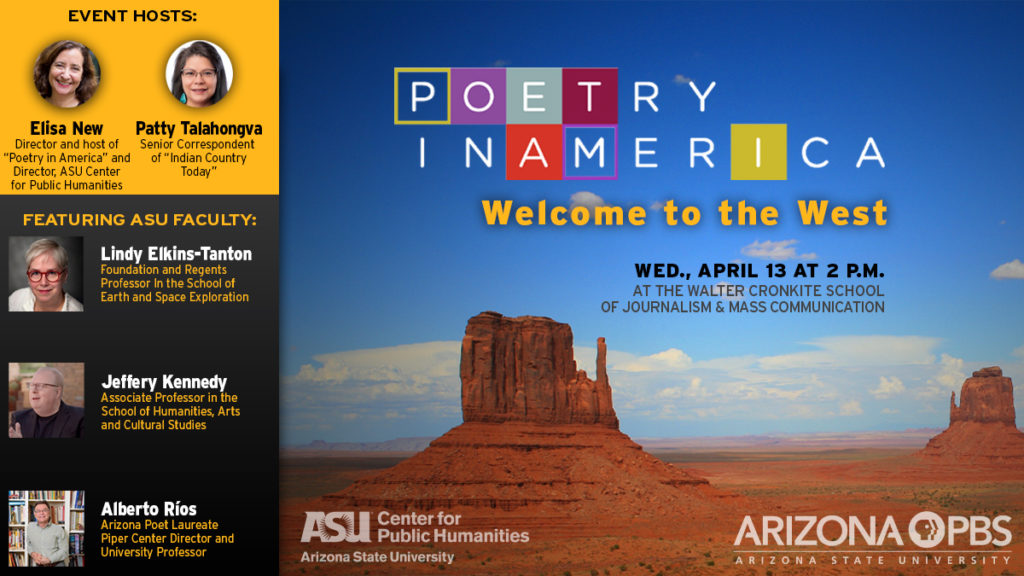
Hosted by Elisa New and Indian Country Today Senior Correspondent Patty Talahongva, Poetry in America: Welcome to the West was co-presented by the Center for Public Humanities at ASU – a new hub for innovation in the humanities, launched this past August and dedicated to creating relevant, engaging interdisciplinary content of the highest quality for learners of all kinds—particularly for those not traditionally served by institutions of higher education.
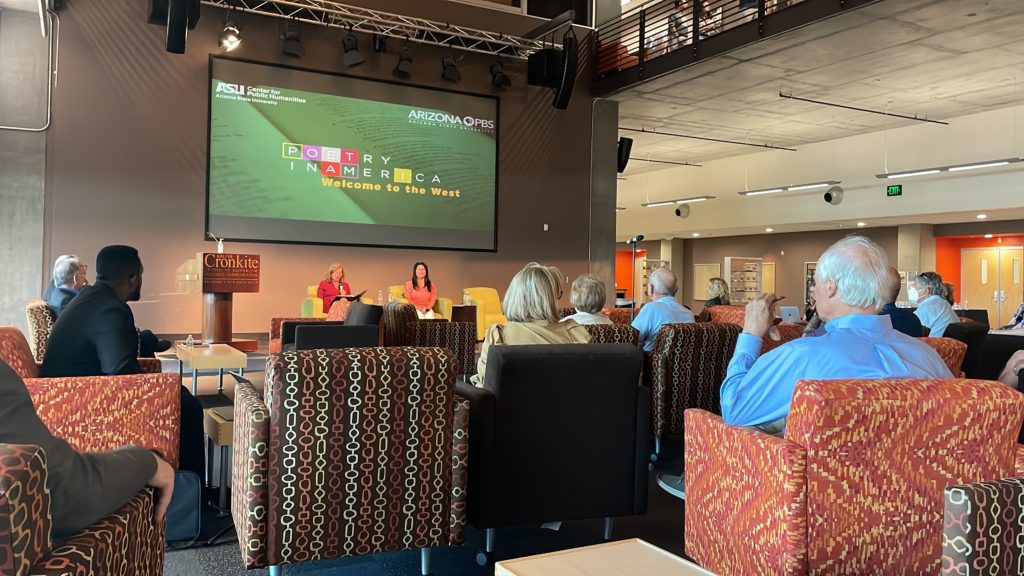
The event was held in the First Amendment Forum at the Cronkite School of Journalism in downtown Phoenix. The afternoon featured introductory remarks by Elisa New and Director of Annual Giving at Arizona PBS Tiffany Khan, and videos clips cut from the PBS show.
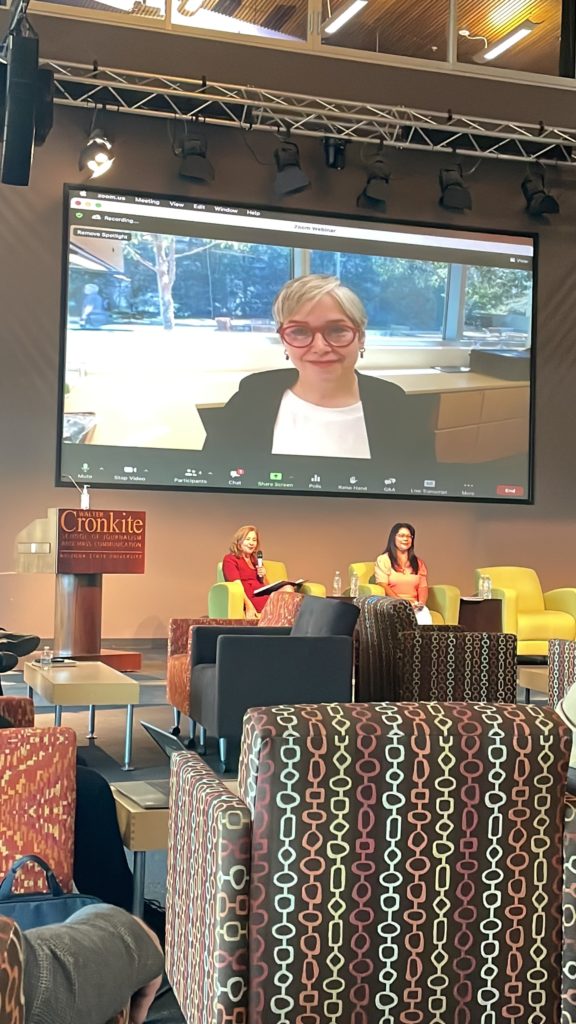
Several distinguished ASU faculty joined Elisa and Patty onstage to talk about their experience on the show. Lindy Elkins Tanton, joining by zoom from Pasadena, CA, spoke about her appearance in our Sloan Foundation-funded science episode on A.R. Ammons’ “Cascadilla Falls.” Foundation and Regents Professor In the School of Earth and Space Exploration at ASU and PI on NASA’s Mission to Psyche, Dr. Elkins-Tanton discussed how a poet’s curiosity about scientific phenomena can be of interdisciplinary importance – even if the science isn’t quite right. She also shared some of her childhood memories exploring the subject of Ammons’ poem – the gorges of Ithaca, New York.
“This poem feels so personal to me [because] I grew up in Ithaca and I’ve walked in Cascadilla creek exactly where he was when he wrote this poem. And my big brother Jim Elkins took poetry from Ammons at Cornell. I would even go another step, which was my very first scientific research project that I ever did when I was an undergraduate: I came back [to Ithaca] over the summer, and I worked with a professor at Cornell, and we studied these very rocks. The rock that [Ammons] held in his hand in this poem and dropped again belongs to a formation of rocks that I wrote about when I was 18. And so to say that this [poem] has so many resonances around the existential and the personal is an understatement.”
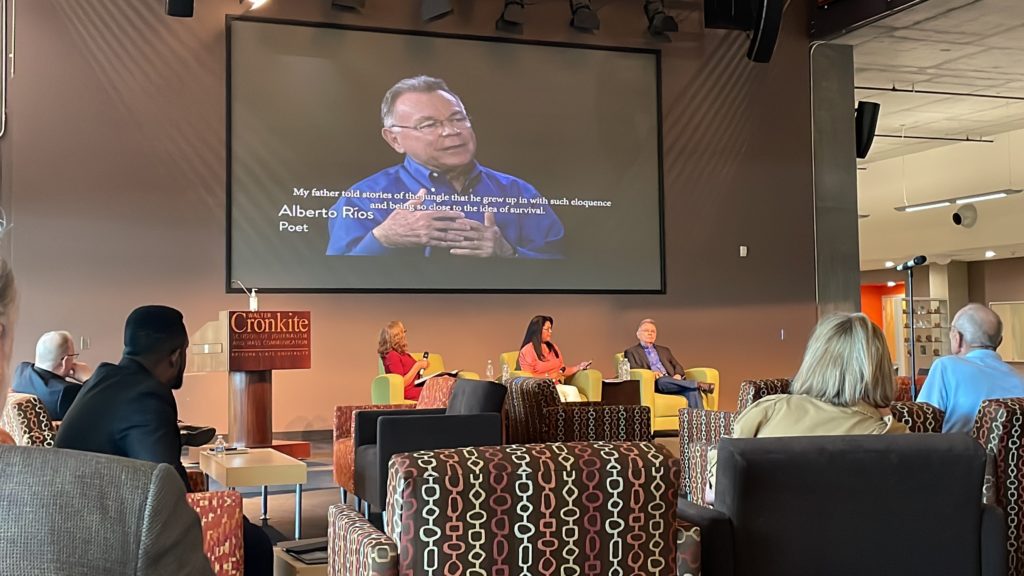
Next, Alberto Ríos – Piper Center Director and Regents’ Professor at ASU, poet laureate of Arizona, national book award finalist, and host of AZ PBS’s long-running show Books & Co. – spoke about his own poem “Rabbits and Fire.” Specifically, he and Patty discussed at length the poem’s specific resonance for Indigenous communities, especially those in the Sonoran Desert..
“Where I was growing up, it was such a mix of populations that it’s hard to characterize it as one specific group. Mexicano, Arizona Desert Dweller, Indigenous, we had a number of different tribal groups on the border, and everybody simply would talk about walking through the desert with a kind of reverence. On the Mexican side – you know the trope of the peasant? The big hat, and the drooping mustache, wearing a serape, and his back is leaning against a cactus? You know how dumb that is if you grew up in the desert. Who puts their back against a cactus? It’s ridiculous… Anybody knows that in the desert, and those kinds of knowledge that come from a life lived – not a life imagined, or a life studied, but a life lived – become the dominant story.”
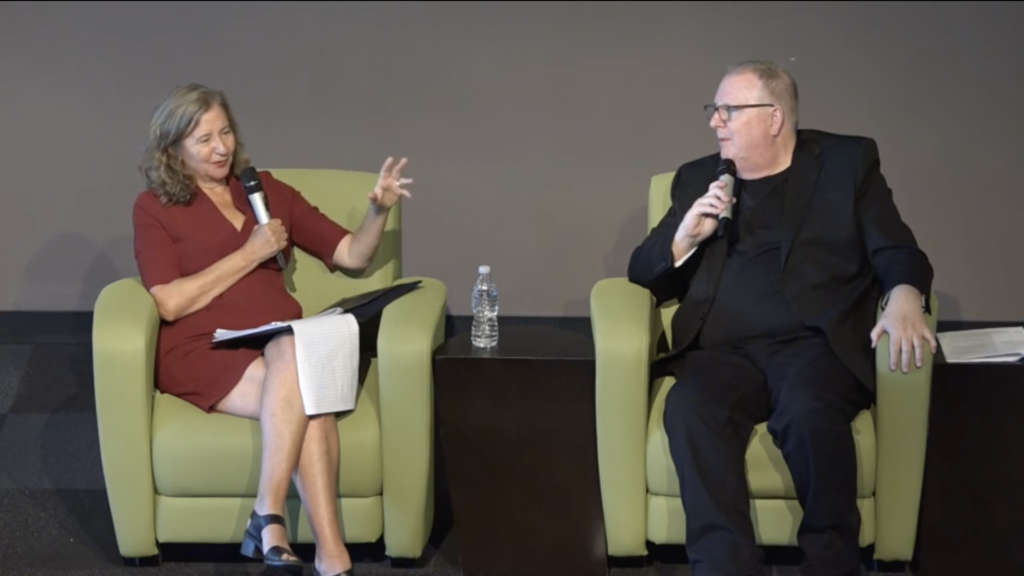
Finally, Associate Professor in the School of Humanities, Arts and Cultural Studies, Jeffery Kennedy went into detail about his scholarship of 1920’s Greenwich Village, and its insights into the world of Edna St. Vincent Millay’s break-up poem: “Sonnet IV; I shall forget you presently, my dear.”
“There were bus tours in New York City to go down and look at the bohemians. Literally, they would take folks that were visiting New York City into buses and they would get to view those bohemians… This new world, if you will. Millay comes in the second wave of that bohemianism… and she becomes our first rockstar—there’s no question about it—people come in the thousands to hear her read her poems.”
